The photographer Irina Werning has been travelling her native Argentina in search of long-haired women to take pictures of since 2006. From the sprawling cities of Buenos Aires and Córdoba to the indigenous communities in the country’s rural north, she stages ‘long hair competitions’ to find those with the longest locks, and documents everyone she meets in her ongoing project, Dear Long Hair. Finding subjects isn’t always easy, she says, but she’s met women of all ages and backgrounds by pinning up advertisements around towns, taking out space in the classifieds and finding Facebook groups for each local province she lands in.
It all began when she was working on another project. “I won the Ian Parry scholarship with The Sunday Times in 2006 and they sent me off on an assignment back to Argentina to photograph rural schools in the middle of the mountains,” she explains. “They’re tiny places, sometimes with only 10 or 20 students, and teachers often have to walk three hours to get there, so many of them stay on site for days at a time.” For around a year, Werning went from school to school documenting daily life, and kept coming across female students with sheaves of hair that appeared never to have been cut. She recalls the first image she took with long hair in mind – of three girls lying on bunk beds reading, their hair draped over the edge. “As I got talking to them, I began to learn that, in my country, having long hair is related to culture. Our ancestors believed that hair is a manifestation of what’s inside us and cutting it is akin to cutting one’s thoughts or lifeline – like it represents a sort of death.”
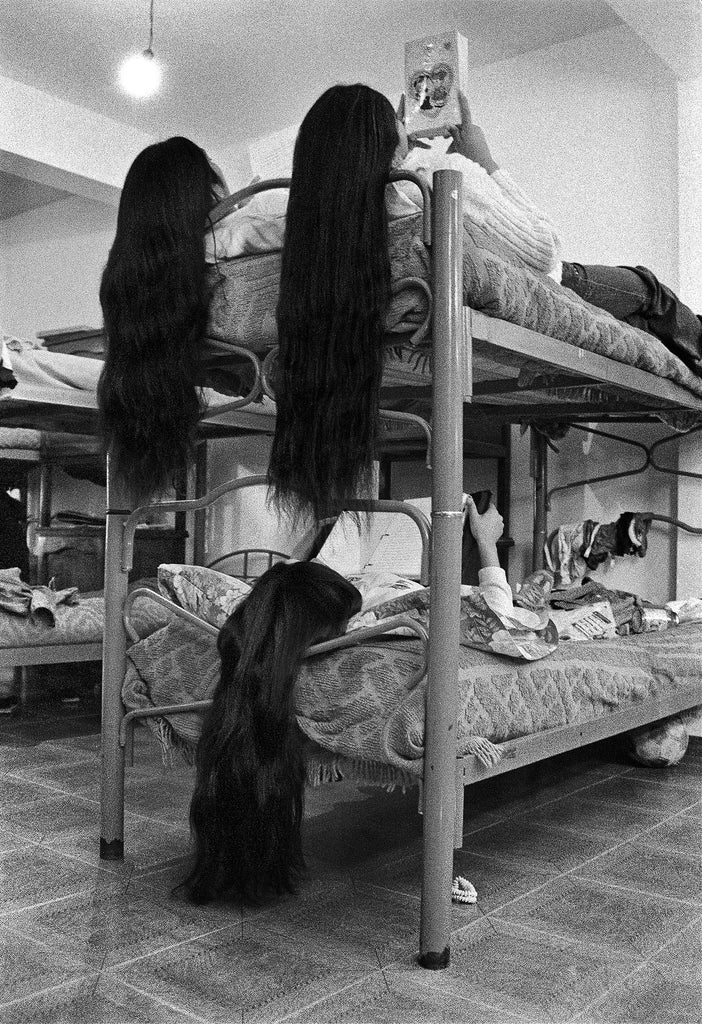
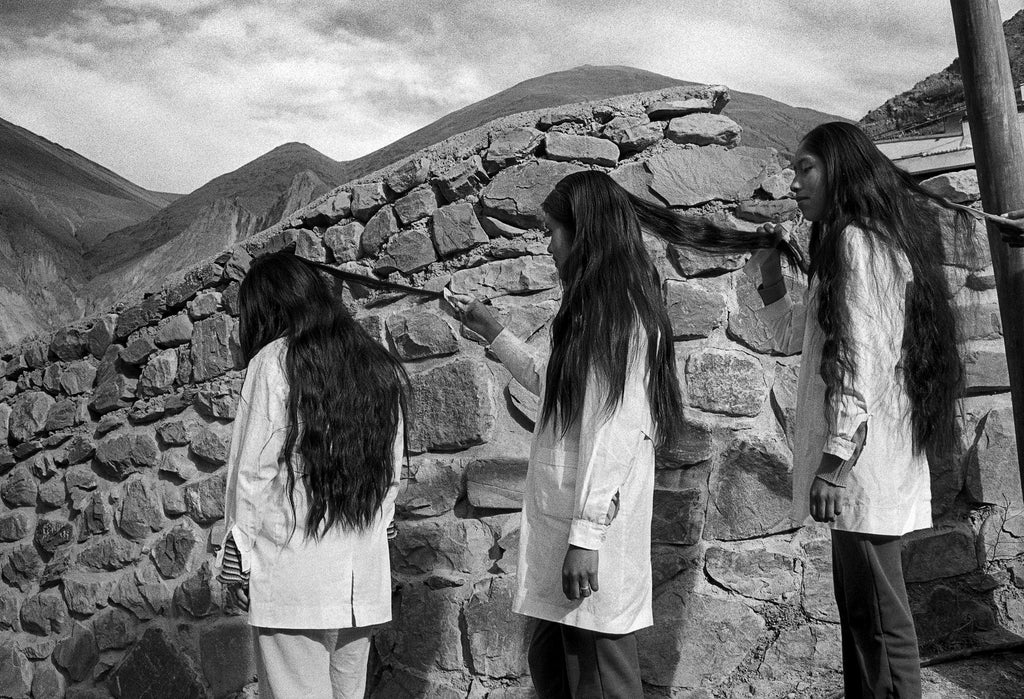
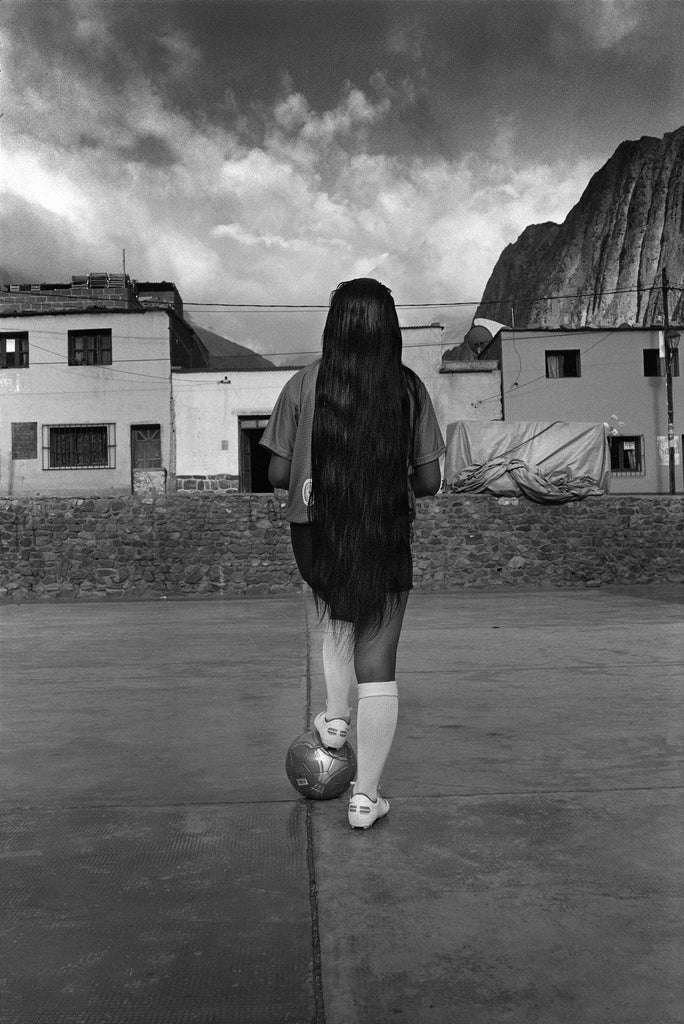
I became interested, from a sociological perspective, to hear why wearing hair long is such a thing for the women of Argentina.
Irina Werning
This tradition, Werning says, extends far beyond these particular communities across the whole country, and to other Latin American countries too, and there’s definitely a generational element to it. “I became interested, from a sociological perspective, to hear why wearing hair long is such a thing for the women of Argentina, and so I started asking everyone I photographed. As it turns out, there isn’t one definitive reason so much as many personal reasons to do with family or community. My subjects will often say that it’s because their mothers or grandmothers had long hair too, or that their father looks after it and washes it for them because that’s what he did for his mother or sister, and so it’s a nice ritual between them. It’s like a tradition that most people don’t even question because it just feels like a natural or normal part of their lives.” Looking after hair this long is hard work, she adds, and most people she meets don’t have the money to buy expensive products to care for it. Indigenous communities especially believe in the power of plants, and will often use old recipes, like boiling rosemary in water, to wash it.
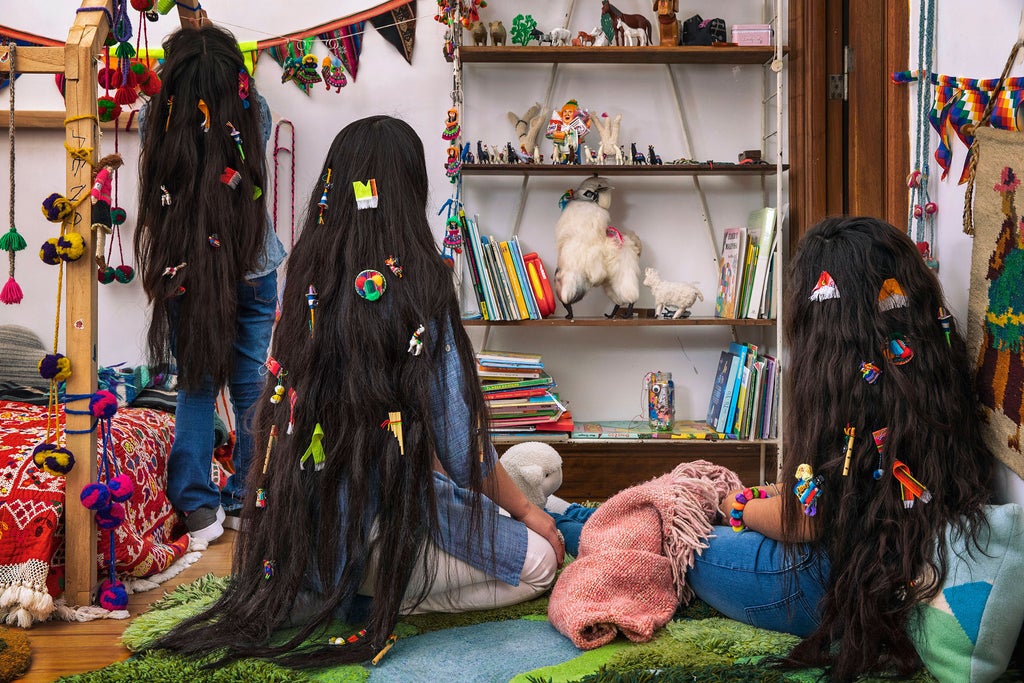
Werning’s photographs are the result of simple, playful portrait sessions, often outside, in a mix of colour and black and white, depending on the context. “I spend time with each person I photograph before shooting, and ask them about themselves, and the chosen setting will usually have something personal to do with them or their experiences.” Werning and her subjects will wander the local area, trying out locations. She points to one image of a young girl with her hair strung up like bunting among cacti: “I found this girl when putting ads out in small towns. The place she lives is known for having millions of cacti and so it was only natural it should be in the photograph.”
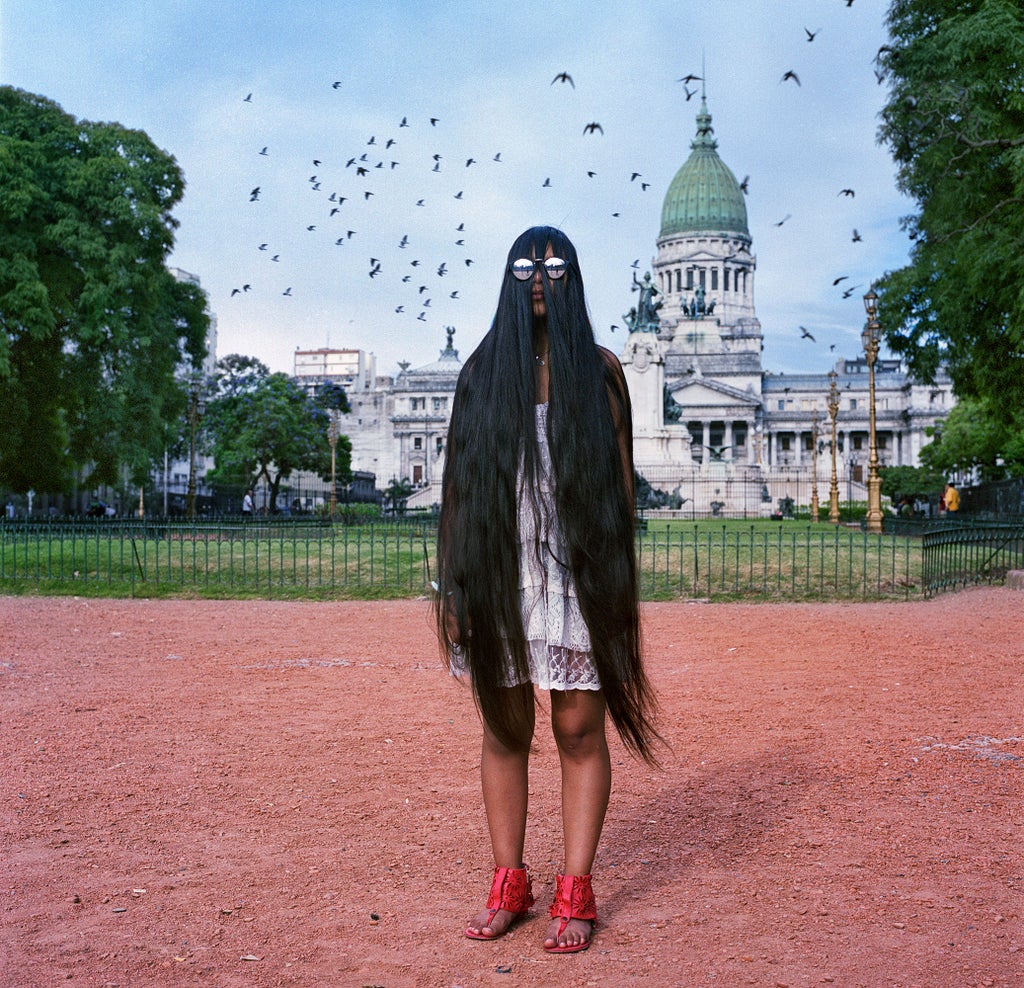
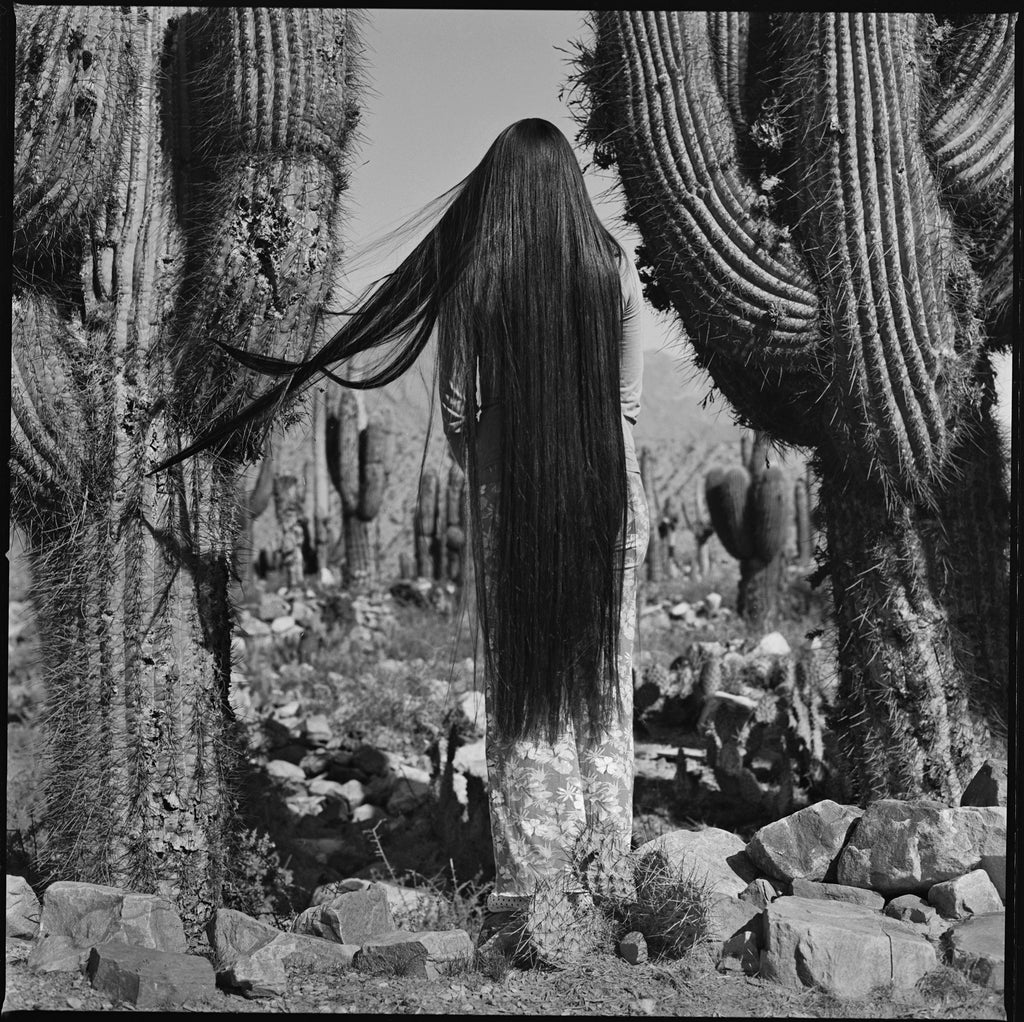
In another of her favourite pictures, around 15 girls line up in the grass of Patagonia, in the mountains near the Chilean border. “I had organised a competition and I told participants to meet me at a specific spot at sunset. I thought three or four people would be there but in the end 25 girls showed up. I couldn’t fit them all in the frame. The light was perfect, the location was perfect and all that hair looked amazing.”
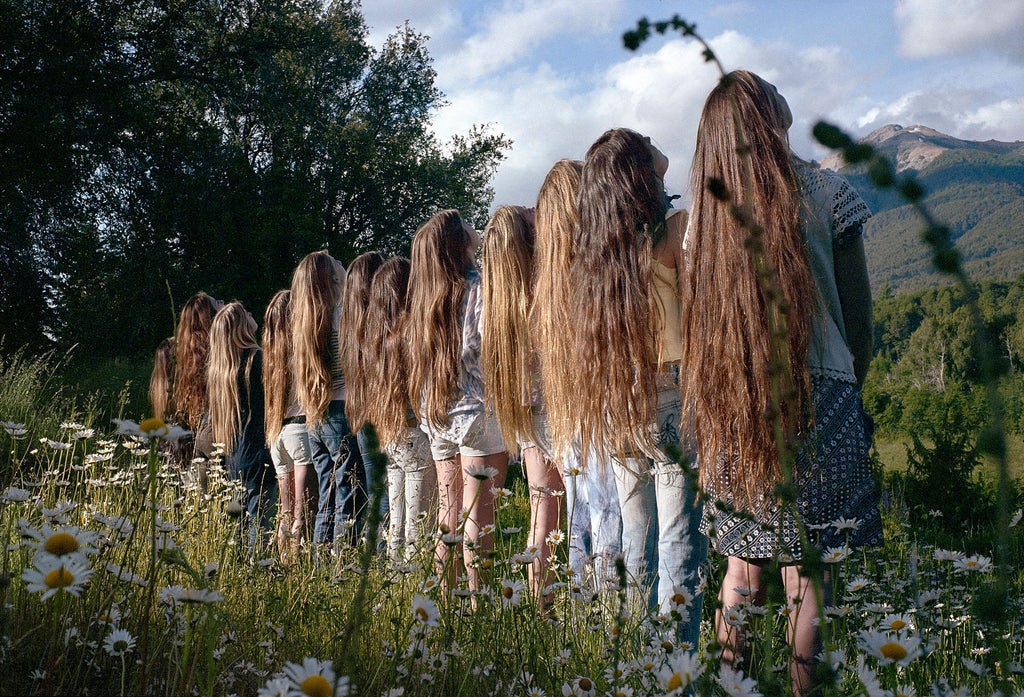
Werning was born and spent her early years in Buenos Aires before moving with her family to Chicago, where she stayed for eight years. Upon returning to Buenos Aires as a young woman, she studied economics and then relocated again to London, where she traced a career through sociology before finding her feet in photojournalism. Several years spent backpacking in Asia and the Middle East helped her to realise how much she wanted to tell the stories of people she met along the way. Now based back in Buenos Aires, she has been thinking about the experience of looking with fresh eyes at a place she knows well.
“I think living abroad makes you understand much more about your culture when you come back because there are certain things that you take for granted as completely normal, but when you see that’s not the norm in other places, you begin to understand that it’s a special part of the narrative of your own country. Dear Long Hair is about identity both collective and personal, and that’s why I keep coming back to it.” It’s been 13 years since Werning began the project and she doesn’t think she’ll be wrapping it up any time soon. “As long as I keep finding these women, I’ll keep shooting.”
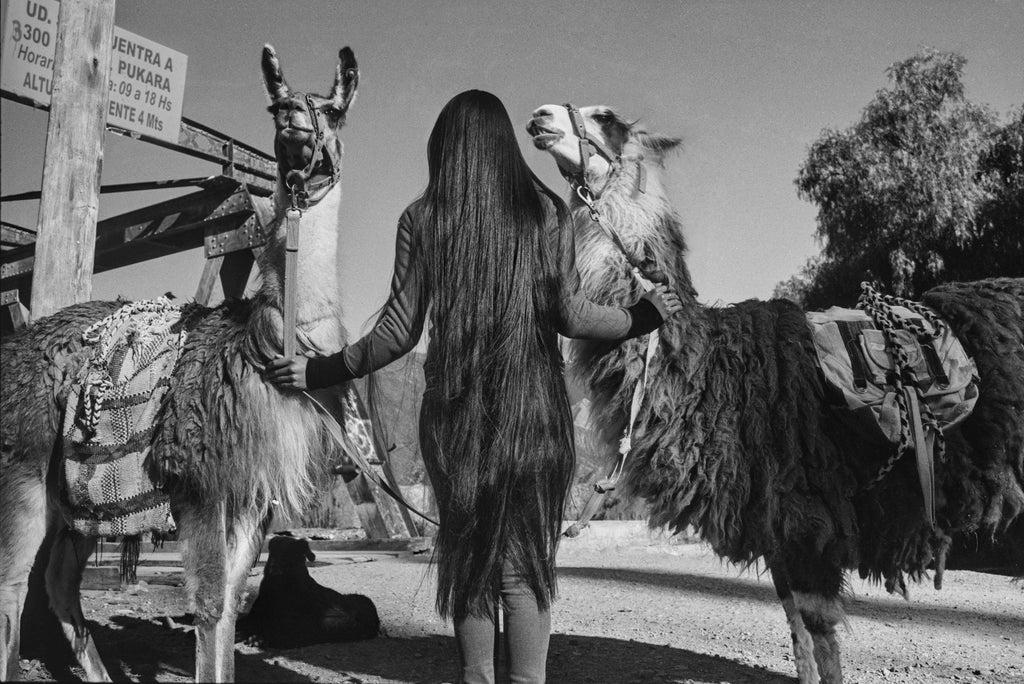
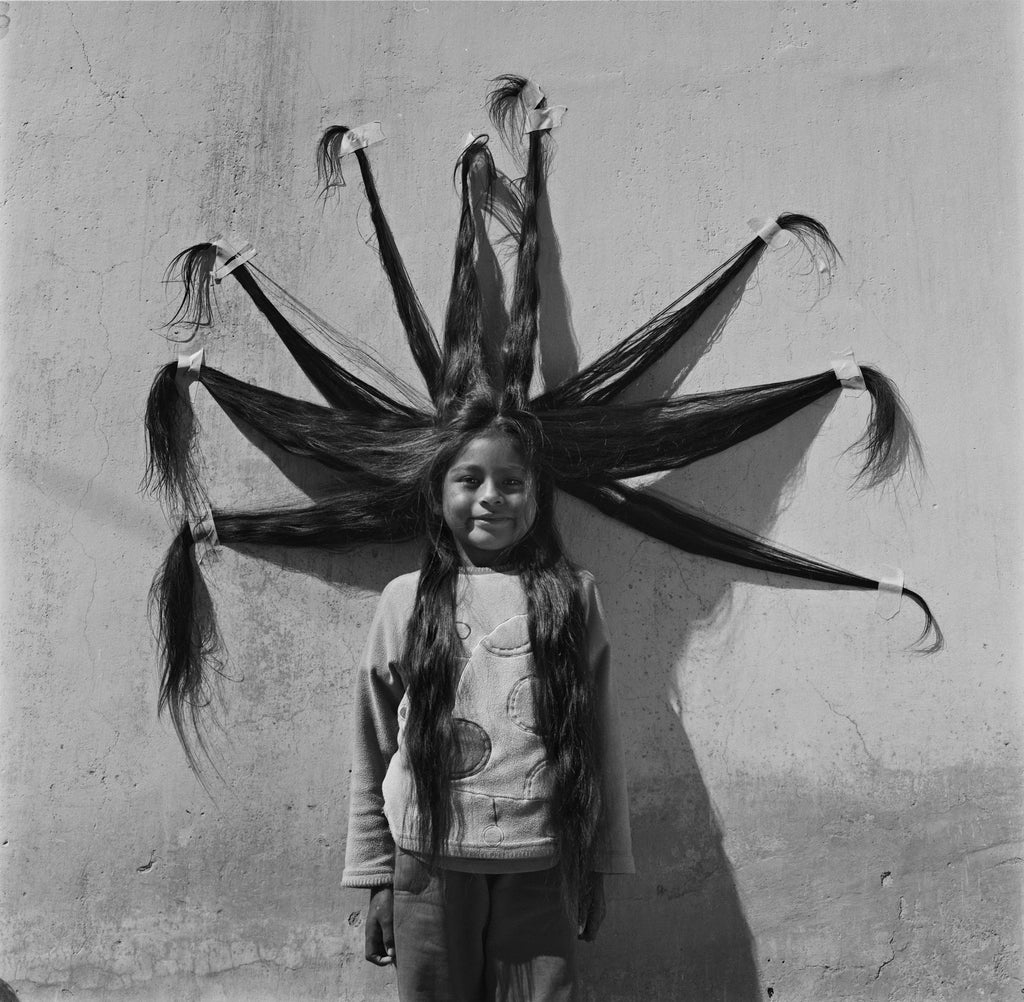
Like what you see? How about some more R29 goodness, right here?
8 Things People With Long, Healthy Hair Always Do